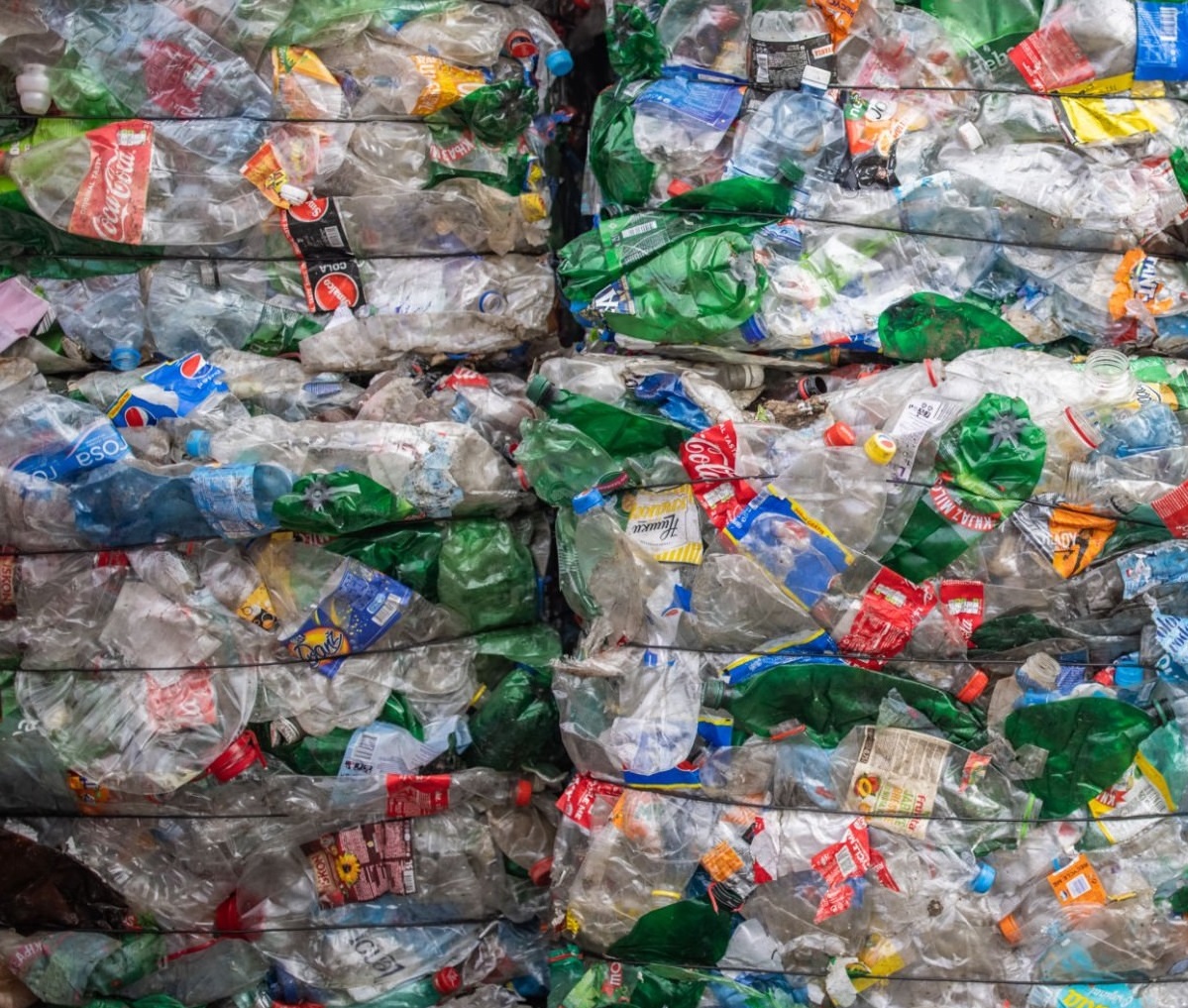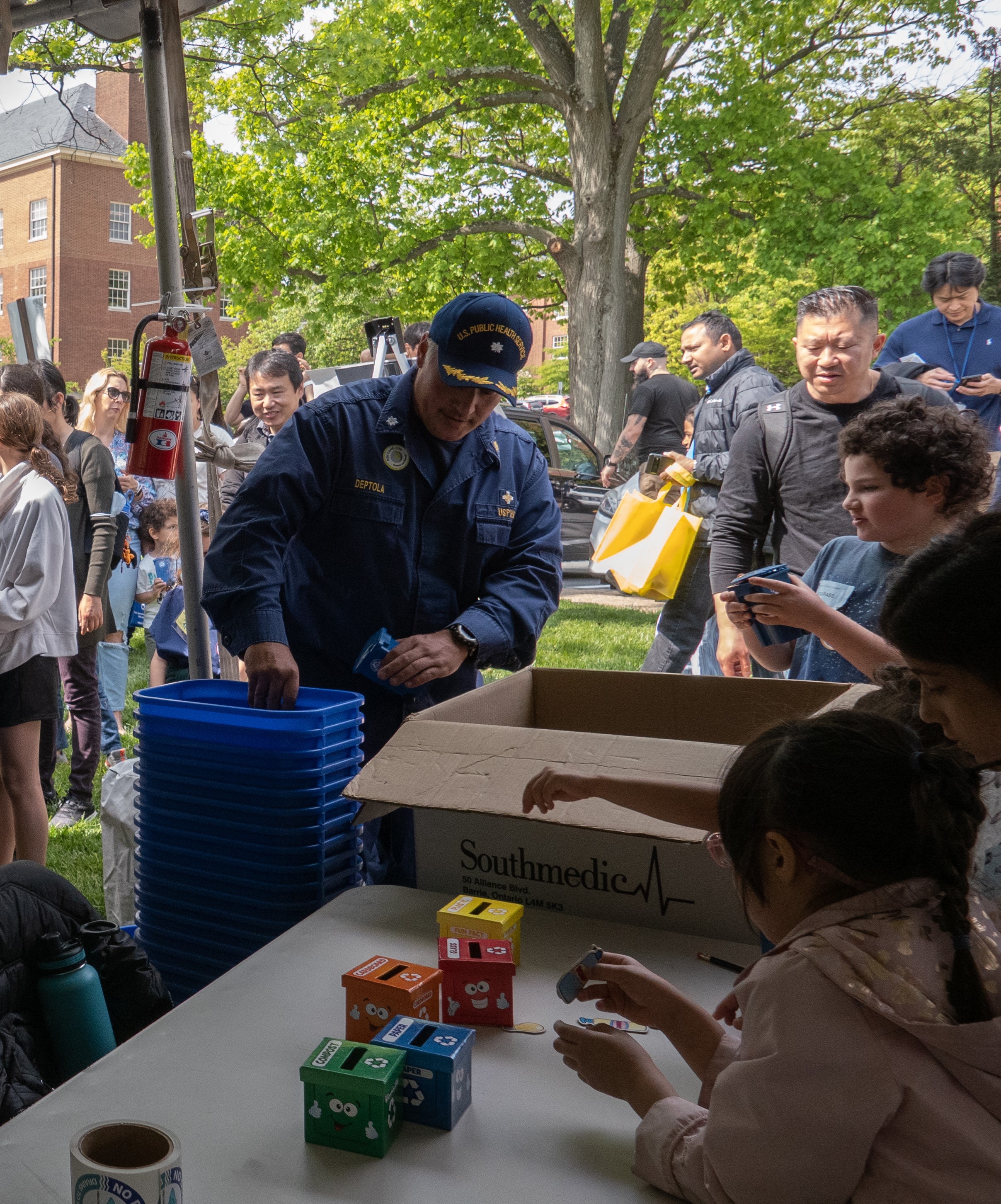
SUBSCRIBE PREVIOUS ISSUES
Take Action
America Recycles Day!
America Recycles Day is Wednesday, November 15 and there are many different ways to participate. Recycling represents a conscious effort to lessen your environmental impact by using alternative waste receptacles. Even something as common as a water bottle can have a complex life cycle that should be considered when deciding to recycle. Making the right choice requires staying up to date on what can and cannot be recycled, then following through with that knowledge. Make sure to check out the NIH Recycling Guide to know what recycling services are available at our institutions!
Alongside that, consider some of the following:
-
Recycle electronics and appliances – Many electronic and appliance manufacturers will accept products that can no longer be used and these items often have useful components that can be salvaged during the recycling process. The NIH Bethesda Campus also offers office electronics recycling at select bins around campus.1
-
Recycle soft plastics – The NIH Bethesda campus has soft plastics recycling available at the Building 10-B2 loading dock and the Building 10 Supply Store.1 You can recycle clean shrink wrap, bubble wrap, Ziploc bags and grocery bags among other things.
-
Recycle your batteries – Don’t trash your batteries! Instead, use the battery collection container in your office. If you would like more information about this, contact Chemical Waste at 301-496-4710.2
-
Take the Recycling Pledge – Help boost the recycling rate of the NIH up from 50% by outlining ways you plan to practice proper waste management!
“Reducing” and “Reusing” are also important to minimize waste generation:
-
Continue the cycle – Consider donating unwanted but still useful electronics to thrift stores, shelters, schools, offices, etc. Try repurposing empty plastic or glass containers instead of throwing them out (see recycling crafts below).
-
Keep inventory – Sometimes, you might already have a product or something similar and don’t need to buy a new one. Make sure you have a good understanding of what resources and materials you already have before buying new ones.
-
Make recycling crafts – Get creative and turn some of your recyclables into fun and useful crafts. Old clothes can be sown into quilts, plastic jugs can be made into hanging planters and even grocery bags can be repurposed into a wild costume!
-
Pay for less plastic – Consider purchasing items with less unnecessary packaging. Plastic wrap, single-use grocery bags, cardboard boxes and packing peanuts should be avoided when possible.
Featured Article

|
How Does Recycling Work?
For years, we have been taught that recycling is an easy and straightforward way to help the environment. However, we seldom talk about what happens behind the scenes after the material is taken from our laboratories and offices. The answer to this question depends on what you recycle and where.
LEARN MORE
|
Spotlight

|
Waste Management with Commander Matt Deptola
USPHS Commander Matt Deptola is responsible for managing the waste contracts at both the NIH Bethesda Campus and satellite locations within the nearby area. He and his team are responsible for ensuring that the NIH meets its compliance obligations for managing wastes while encouraging the NIH to consider best management practices for waste reduction and recycling.
LEARN MORE
|
NEMS Training
Did you know? All recyclables should be clean and empty to avoid contamination issues that could result in entire loads being disposed as trash. Take a moment to dump food contents in the trash before recycling food and drink containers. To learn more about recycling, please visit the NEMS Training webpage to view a short (20 minute) NIH environmental awareness training video.
The NIH Green Zone Newsletter is a publication intended to inform NIH staff about the Division of Environmental Protection and NIH Green Teams projects and initiatives. The text contained in this newsletter is not copyrighted and can be reprinted without permission. If you use portions of this newsletter in your own publication, we ask that you please credit the source. We welcome your comments and suggestions. Thank you.
|
|---|
|
Division of Environmental Protection | Office of Research Facilities | Office of Management
National Institutes of Health | U.S. Department of Health and Human Services
|